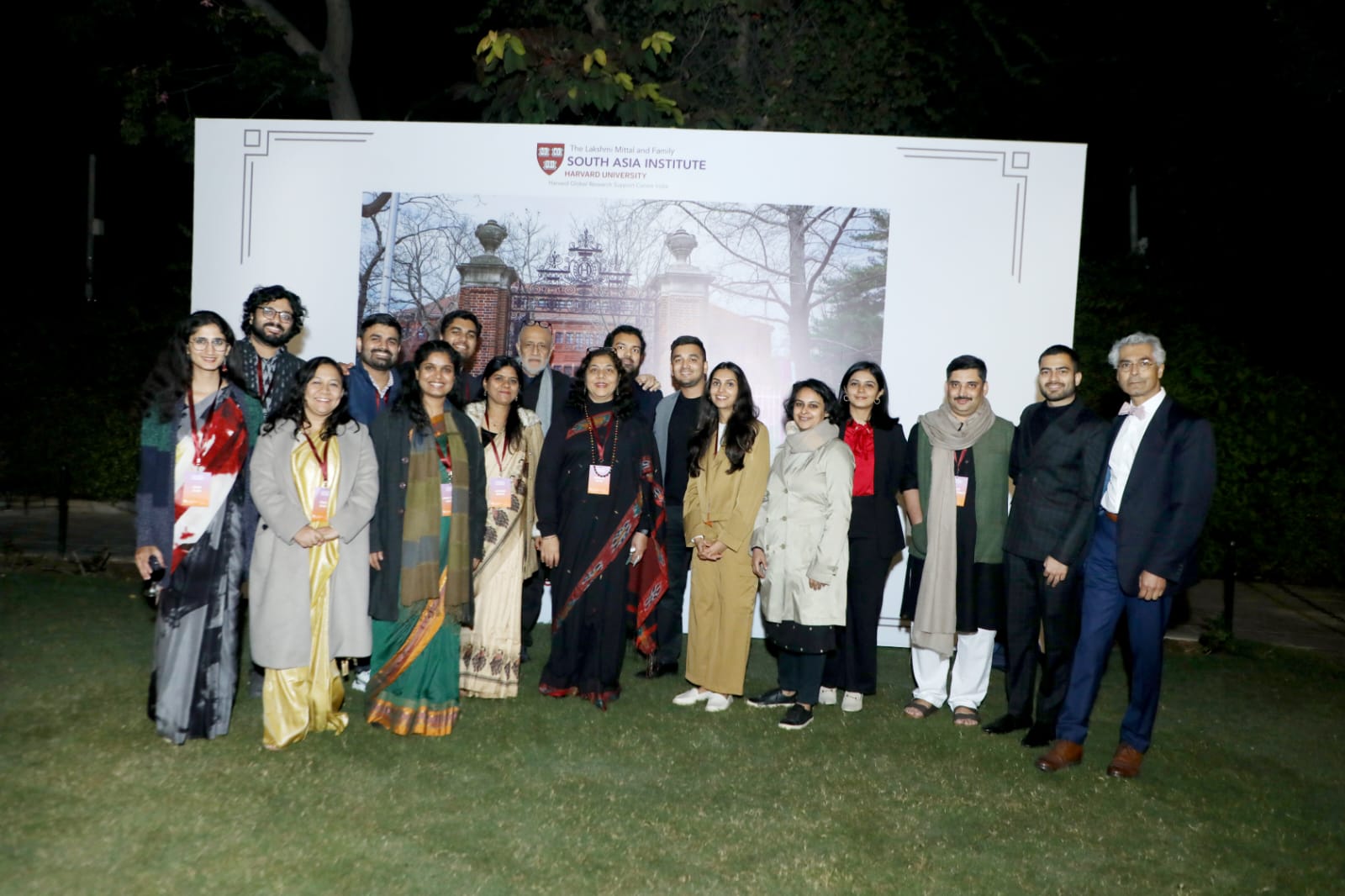This winter break, students, faculty and scholars set off for all corners of South Asia for research, study, and even some downtime. We caught up with some of our community to hear about their explorations and discoveries in-country.
Vikram Patel
Paul Farmer Professor and Chair, Department of Global Health and Social Medicine at Harvard Medical School
Vikram Patel set off for Bhopal, India, to inaugurate a new project office for Sangath and review progress of several ongoing NIH funded research studies being conducted in collaboration with Sangath. The mission of this collaboration is to generate knowledge and catalyze its uptake towards the goal of realizing quality mental health care accessible and affordable for all. He also visited New Delhi government schools to review their school mental health program.
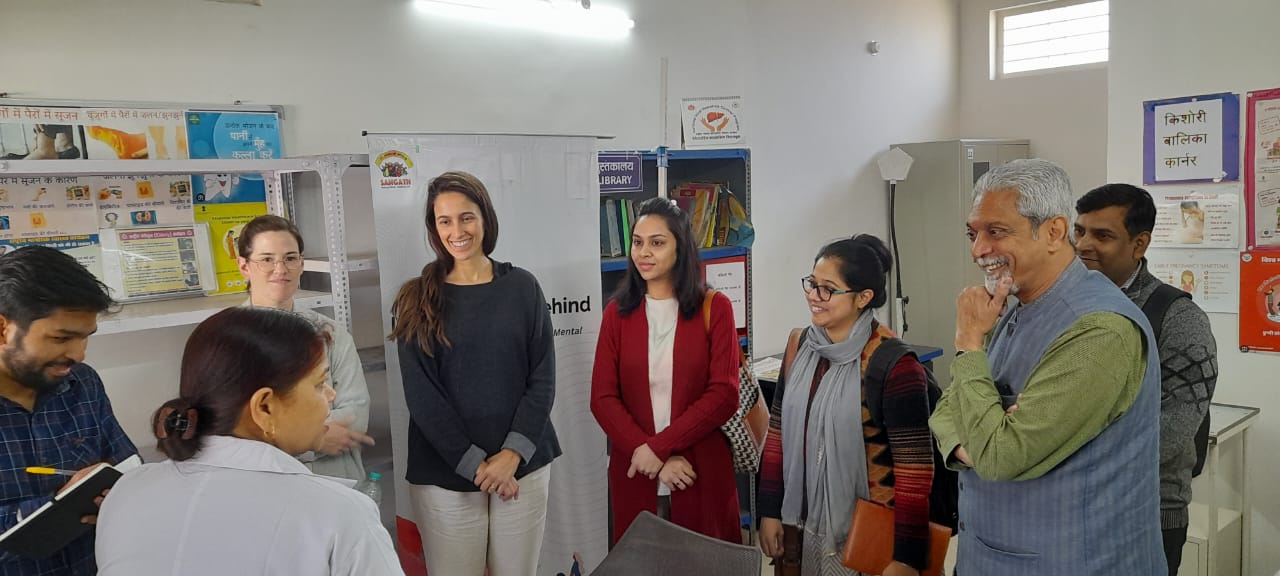
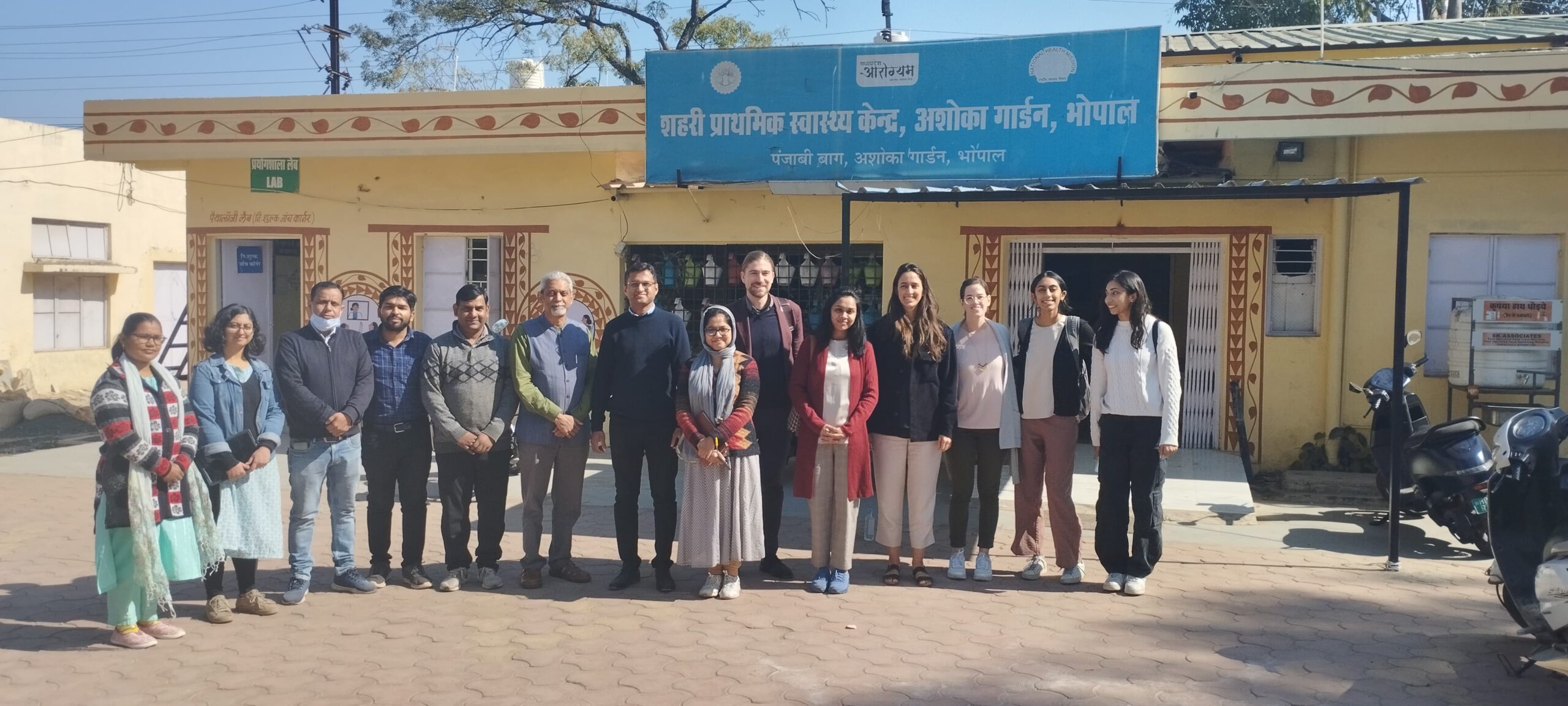
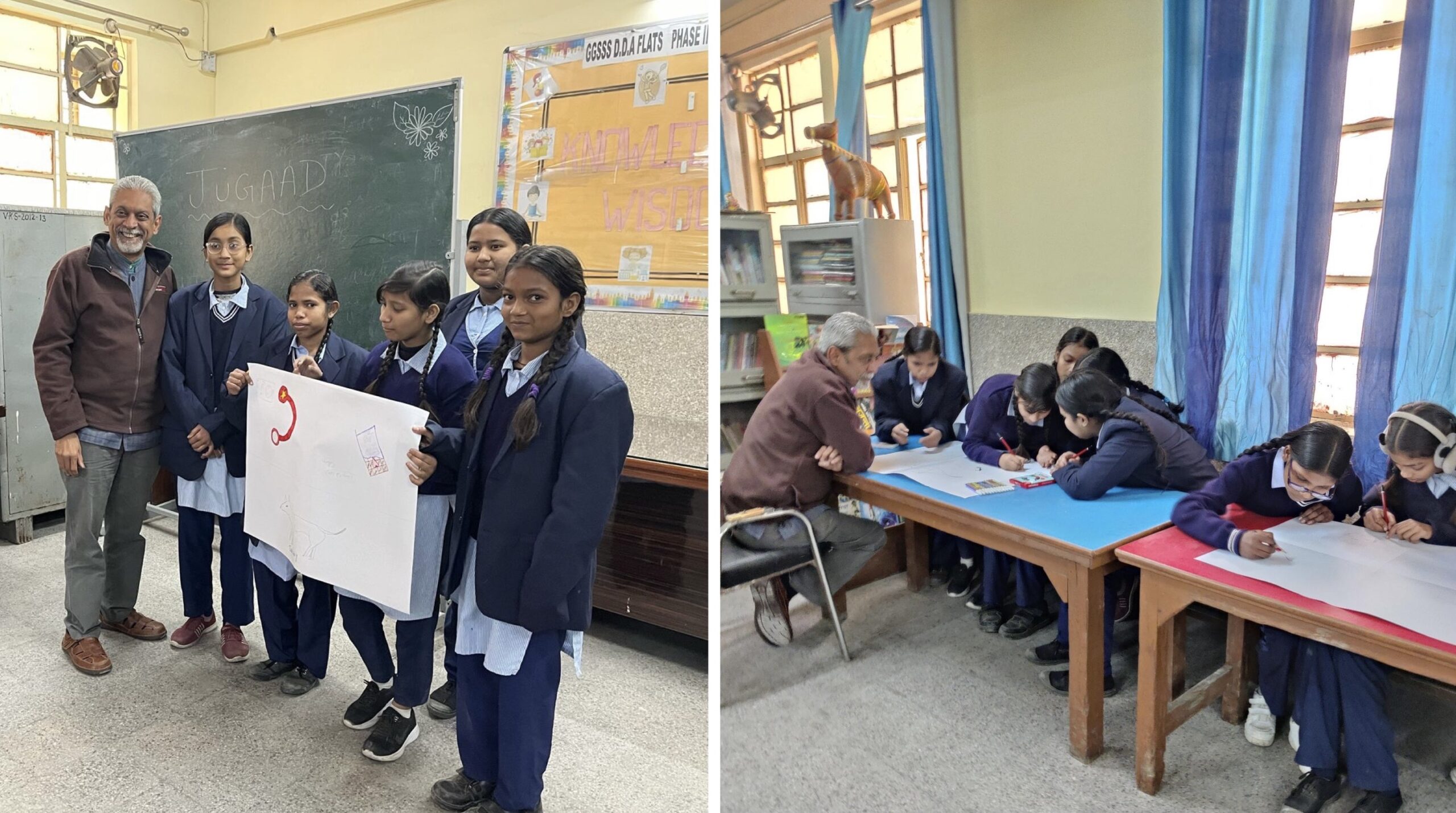
Vikram Patel visits local healthcare providers and government schools in India to prioritize access to quality mental health care.
Martha Alter Chen
Lecturer in Urban Planning and Design, Graduate School of Design
Marty Alter Chen led a panel discussion on different uses of urban public space at an award ceremony for short films on this topic organized by the Charles Correa Foundation at the National Centre for the Performing Arts in Mumbai, India on January 22. On February 3rd, she is speaking at a national workshop of waste pickers in Goa, India organized by the Alliance of Indian Waste Pickers and the WIEGO network which she co-founded.
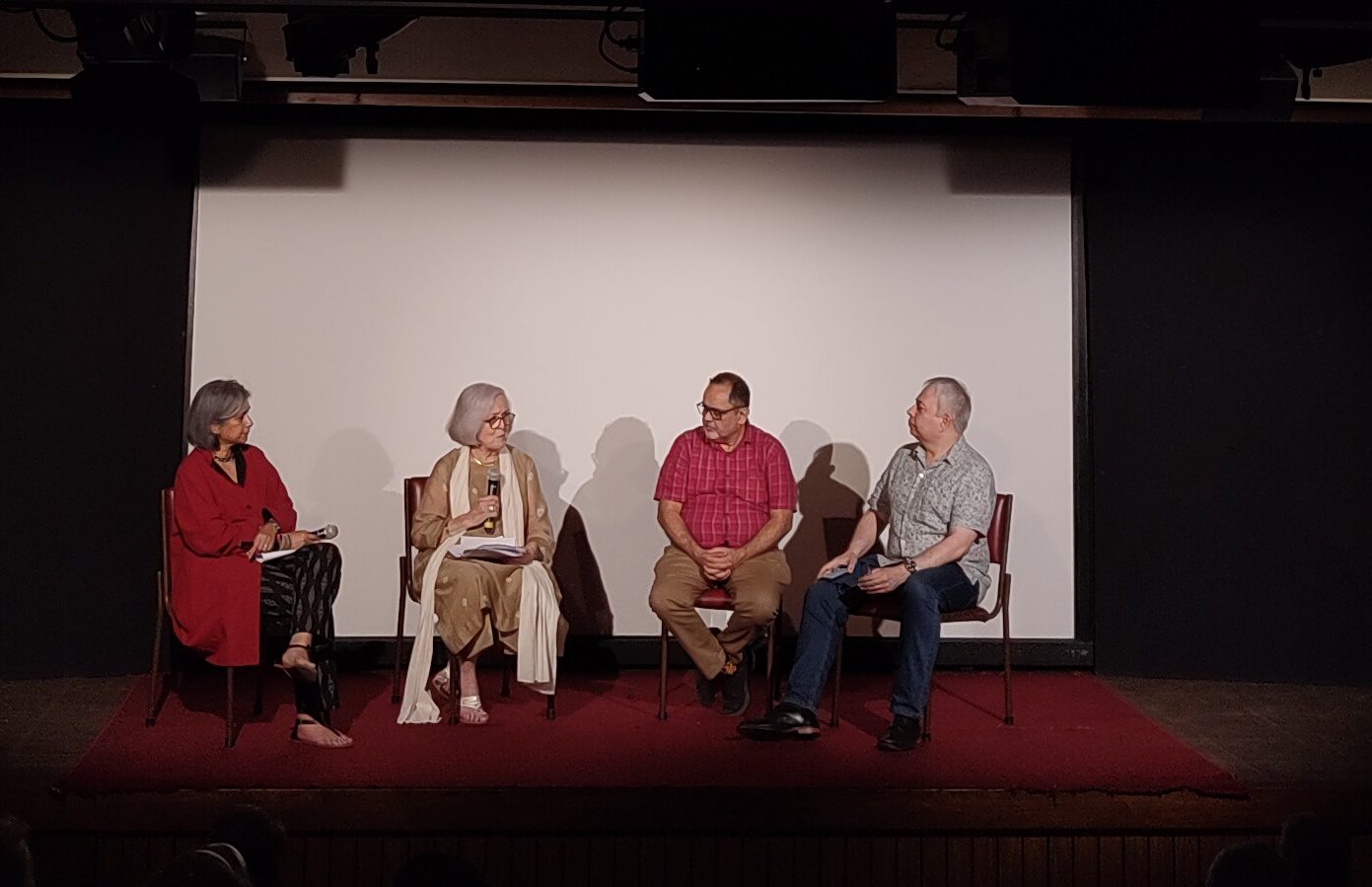
Marty Chen, second from left, lectures at the National Centre for the Performing Arts in Mumbai, India.
Satchit Balsari
Assistant Professor in emergency medicine at Harvard Medical School and Beth Israel Deaconess Medical Center.
Satchit Balsari and a team of researchers collaborated on the India Digital Health Needs Finding Study, which is a project from the St John’s Research Institute and Harvard’s India Digital Health Network, in collaboration with the National Health Authority. This is a first of its kind in-depth evaluation of the most pressing needs felt by various stakeholders in India’s health delivery landscape to better target the billions of dollars of investment expected in digital health tools, data science and AI, in the coming years.
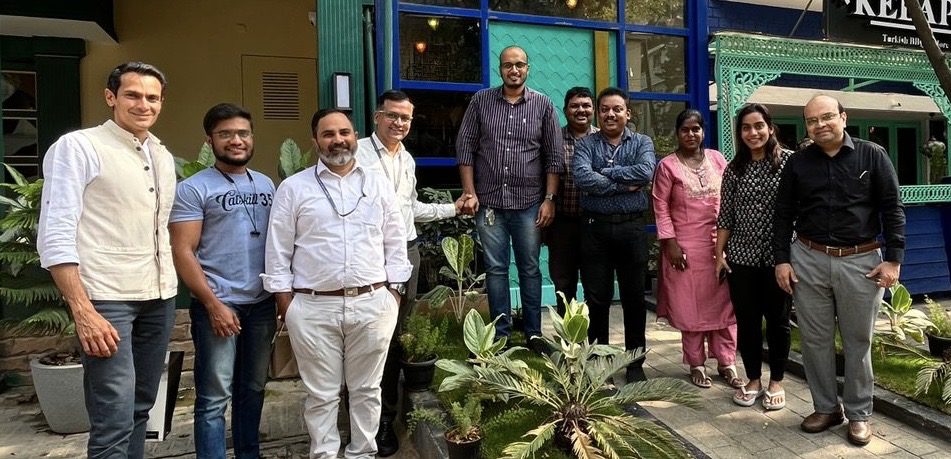
Image above: Satchit Balsari, left, with the India Digital Health Needs Finding Study project team.
Aisha Kokan ’26
Harvard College
Aisha spent her winter break in Chennai, India after earning a Mittal Institute winter grant to complete the research project, “Body Image & Eating Disorders: Enduring Legacies of Historical Trauma on Women in Tamil Nadu, India.” Says Aisha about her project, “Physicians theorize that famines intensified by British colonial rule have altered the South Asian body. I hypothesize the high prevalence of increased fat mass & lower lean mass have affected the mental health of Indian women in relation to body image and eating-related disorders. I seek to study how the current suffering of Indian women in Tamil Nadu, India are tied to the physical body, and analyze the extent to which the altering of South Asian genetics may have influenced these narratives.”
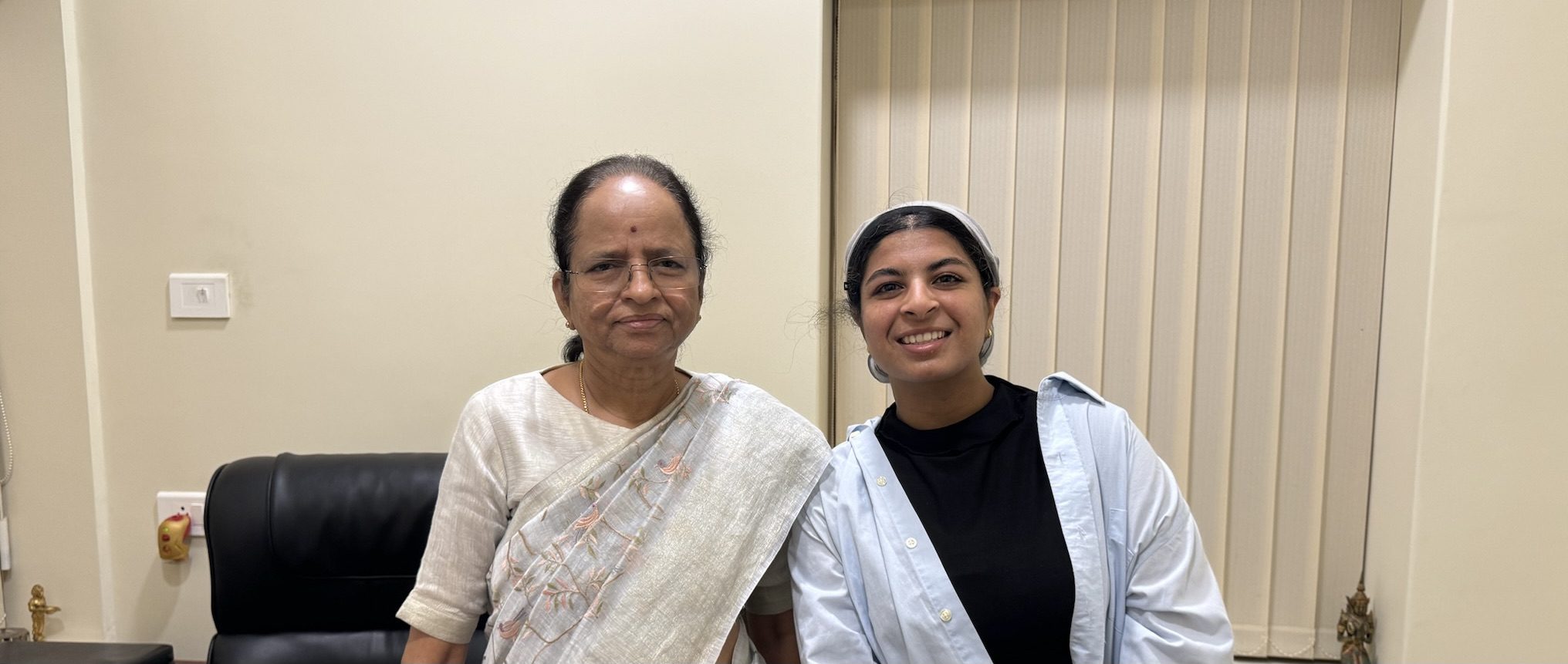
Aisha with Dr. Lakshmi Vijayakumar, the founder of SNEHA, a leading NGO for mental health across India.
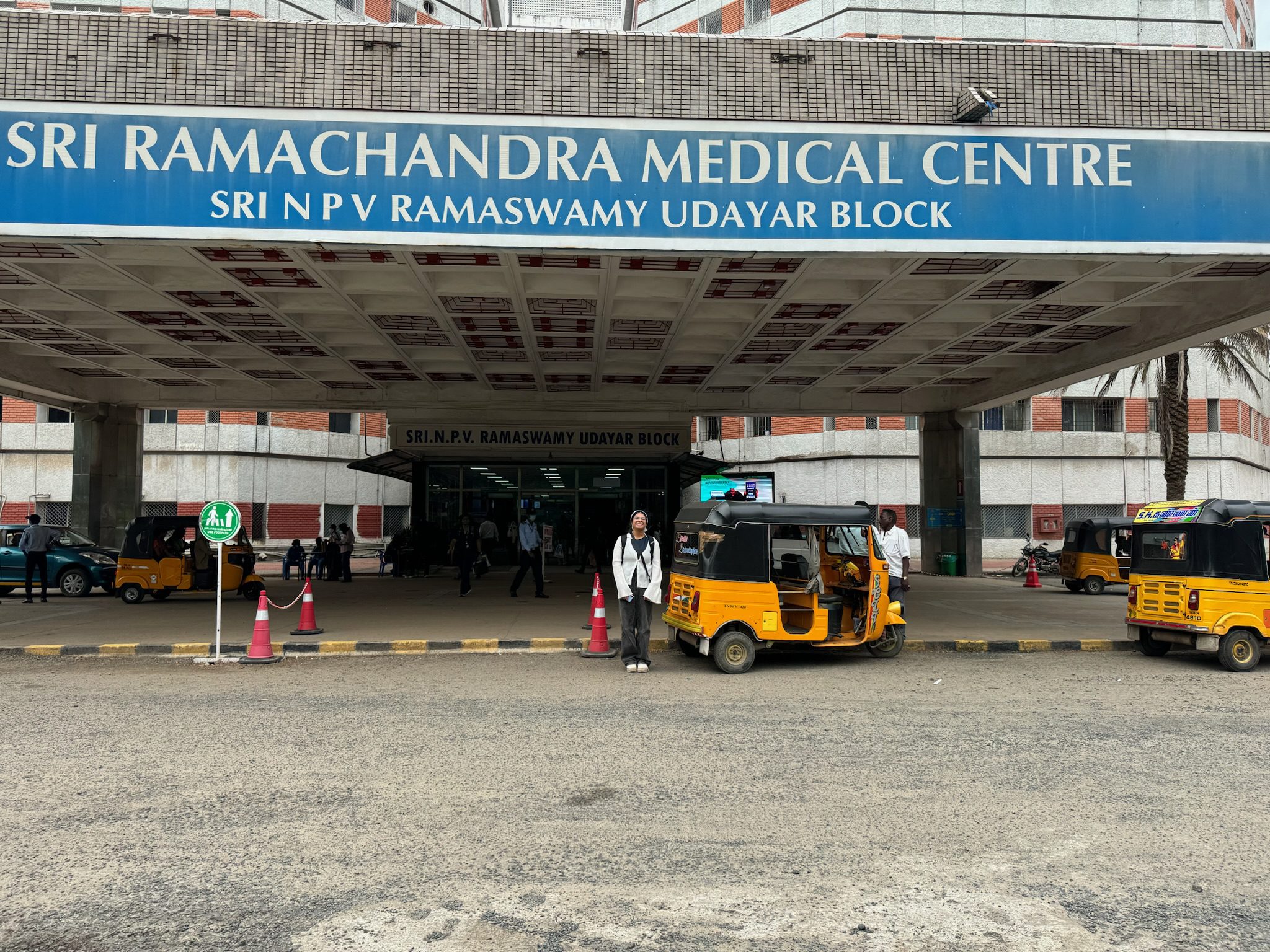
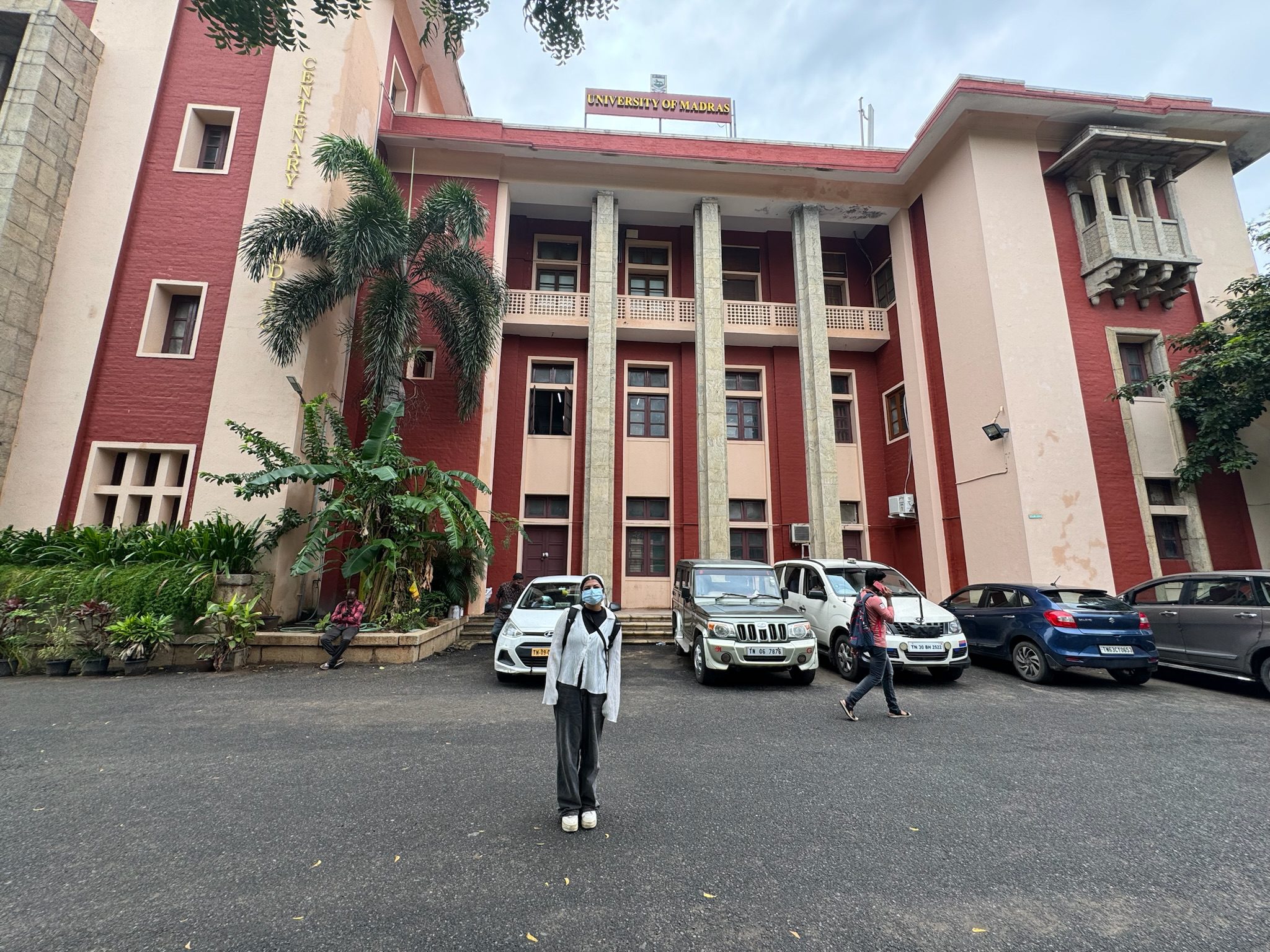
Image above: Aisha in front of Sri Ramachandra Medical Centre, one of Chennai’s top multispecialty hospitals, where she conducted interviews for her research; Below: Standing in front of the University of Madras, one of the oldest universities in India.
Imaan Mirza ’25
Harvard College
Imaan earned an LMSAI winter grant to study in Lahore, Pakistan. Says Imaan, “My goals with the Mittal student grant was to spend my winter break learning more about the Pakistani legal system. While I had spent some time at family law non-profits in the U.S., I was eager to join a counterpart in Pakistan to learn about how family laws worked in Pakistan, an Islamic republic. AGHS Legal Aid Cell is the country’s leading human rights advocacy group, delivering free legal support for its low-income clients. It also specializes in family law. I felt that I could gain no better experience in meaningfully understanding Pakistan’s family laws than by interning with the non-profit for my winter break. I also hoped that I might find some potential thesis topics in the process of working there.”



Images, left to right: Lahore High Court; Imaan at the Wazeer Khan mosque; an old book bazaar.
Deepika Gopalakrishnan ’24
Harvard Graduate School of Design; Harvard Paulson School of Engineering & Applied Sciences
Deepika earned an LMSAI winter travel grant to study in Bangalore, India. Says Deepika about her research, “Menstruating women generally rely on visual cues to know when they have gotten their period. There are 86 million menstruating women living with some form of visual impairment or blindness in the world. The inability to identify the onset of their periods independently impacts their independence, privacy, dignity, and emotional well-being. Visually impaired or blind individuals in India sometimes rely on other trusted individuals to check their underwear to confirm the onset of their periods.
This reliance on others for assistance compromises their privacy and hampers their ability to manage their menstrual cycles with autonomy and freedom. Moreover, it also inhibits their ability to make decisions regarding intercourse and pregnancy independently. They also have to resort to unconventional methods like touching, smelling, or tasting bodily fluids which compromise their dignity and hygiene. This creates a dehumanizing and humiliating experience for menstruating individuals who are visually impaired or blind. Our goals with the Winter grant were centered around understanding- What is the biggest challenge when it comes to period management for individuals who are visually impaired or blind? The aim was to gain insights that would guide the development inclusive solutions that cater to the specific needs of this community, empowering them to manage their period more independently, hygienically and comfortably.”
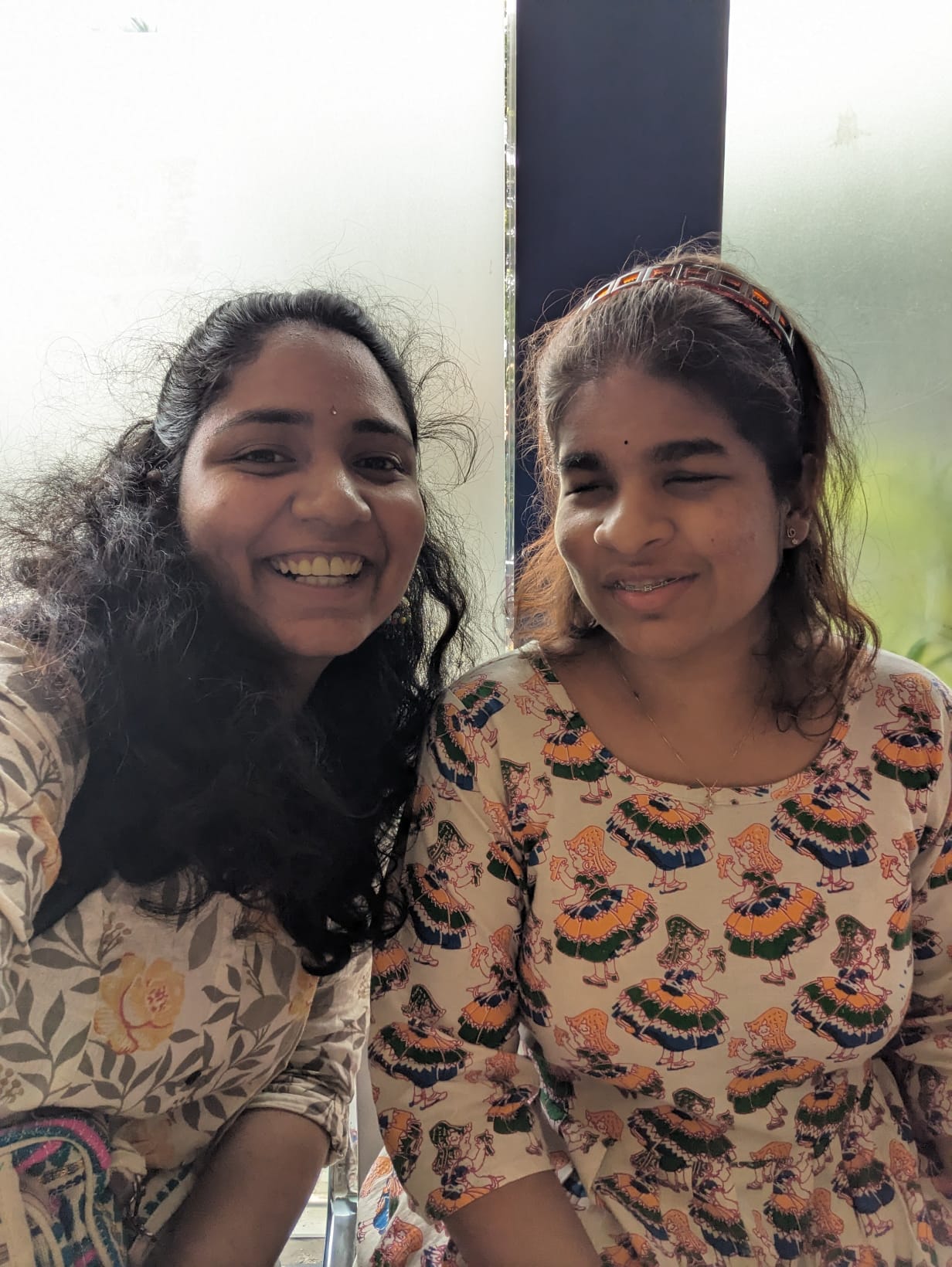
Deepika Gopalakrishnan ’24, a Master in Design Engineering candidate, with Shravya Kanithi, a Senior Business Executive at Wells Fargo, who is visually impaired
Visitors to our New Delhi Office
Tarun Khanna, Director of the Mittal Institute and Jorge Paulo Lemann Professor, Harvard Business School, visited the New Delhi office over winter break. Pictured with Prof. Khanna are, left to right: Amit Chaudhary, Administrative and HR Coordinator; Mohini Gangula, Climate Coordinator; Sushma Mehta, Grants and Finance Manager; Tarun Khanna, LMSAI Director; Monika Setia, Associate Country Director; Rinan Shah, India Fellow at LMSAI; Saba Kohli Dave, Communications and Outreach Consultant.
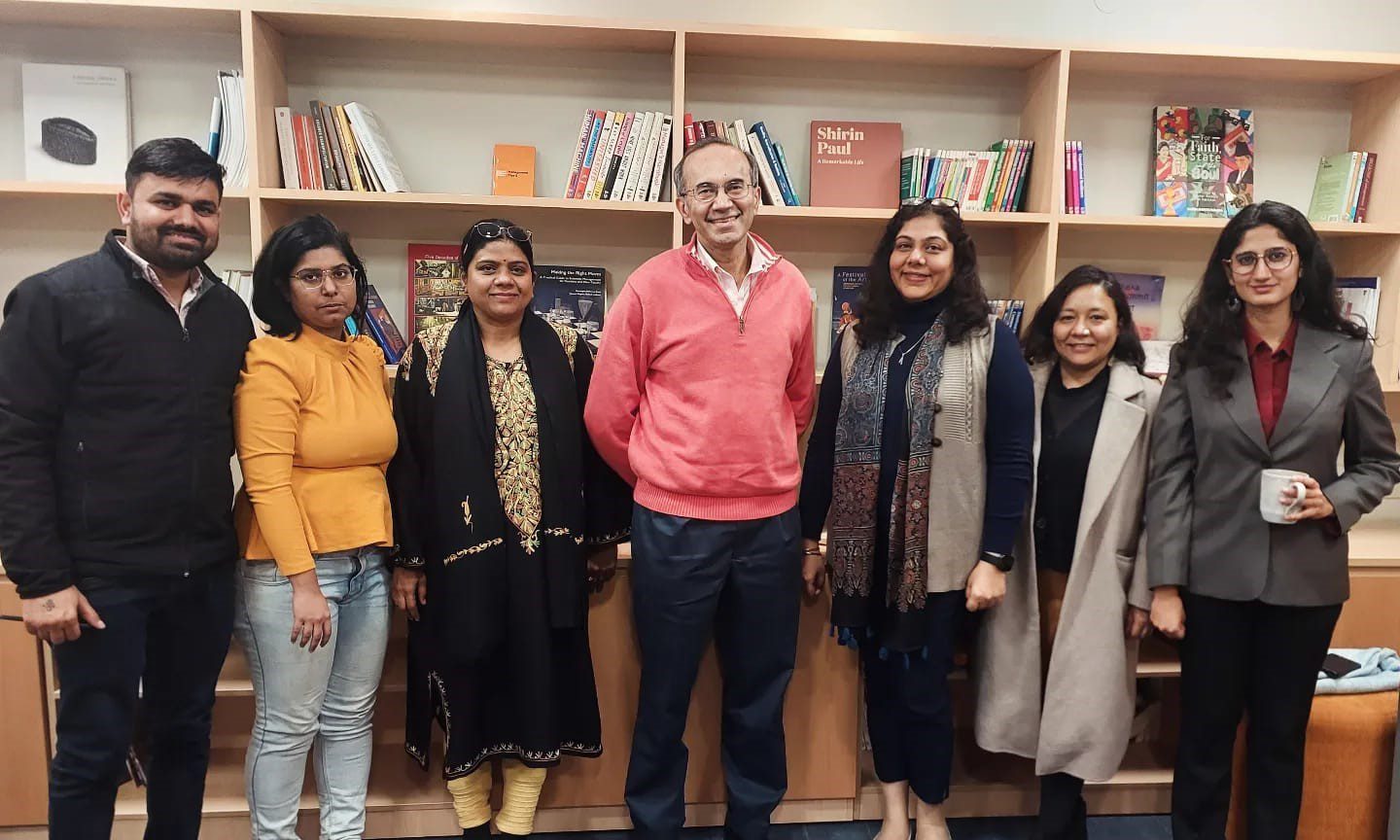
Andrew O’Donohue (third from left in the image below) is a Ph.D student in Harvard’s Department of Government who visited the New Delhi office to conduct in-country research. He studies resistance to democratic erosion, political polarization, and the rule of law, with a focus on Turkey, Europe, and the Middle East.
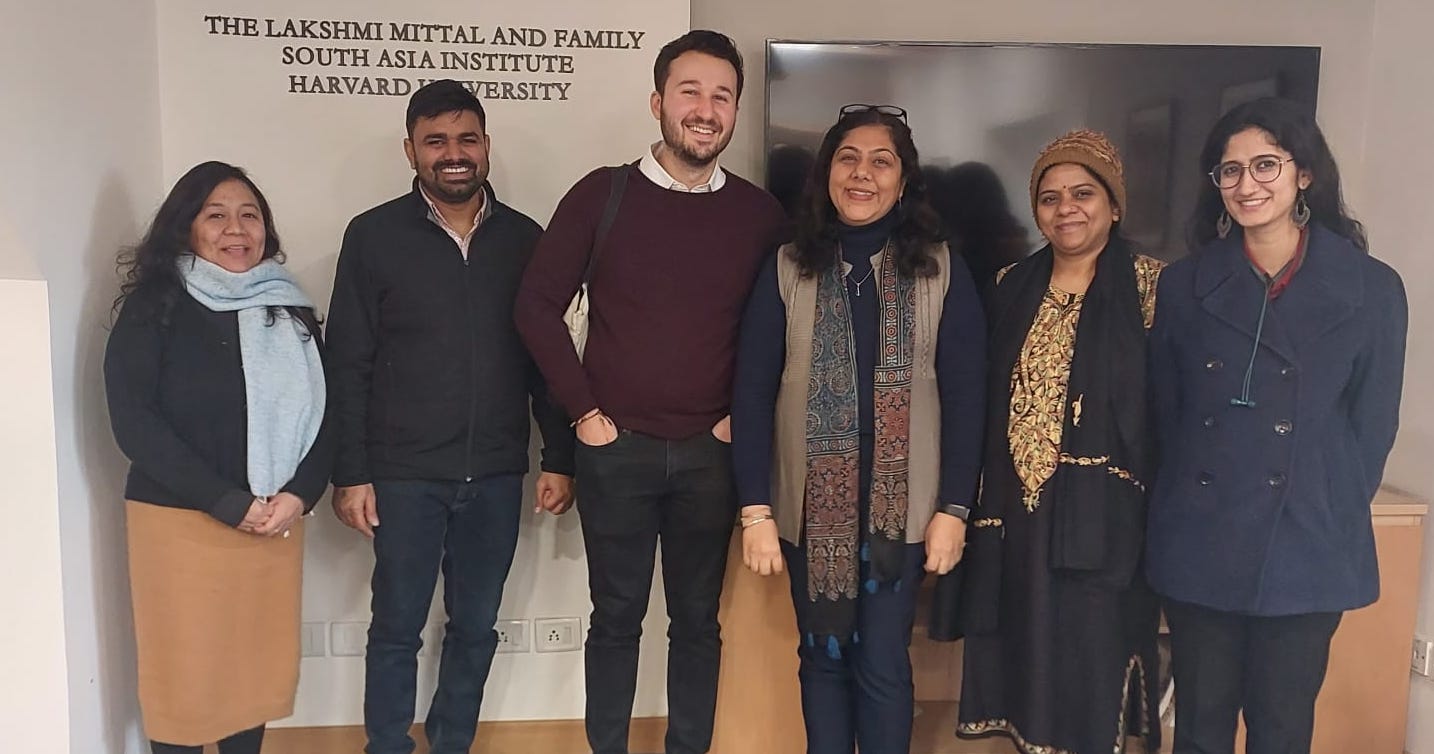
The New Delhi office, in conjunction with the Harvard Chan School of Public Health India Research Center, HBS India Research Center and the HBS Club of India, hosted the January event, “Illness to Wellness to Well-being: Views from the C-Suite.” The event featured Dr. K. Viswanath, Lee Kum Kee Professor of Health Communication at the Harvard T.H. Chan School of Public Health for a discussion on how well-being is promoted in companies and the challenges and opportunities in taking an integrated approach to well-being. Dr. Vish shared findings from his study with C-Suite leaders followed by a fireside chat with Dr. Geeta Kumar, well-being & sustainability advocate and DE&I and OD Consultant, and Preeti Gupta, Group Executive President, Group HR, Aditya Birla Group.
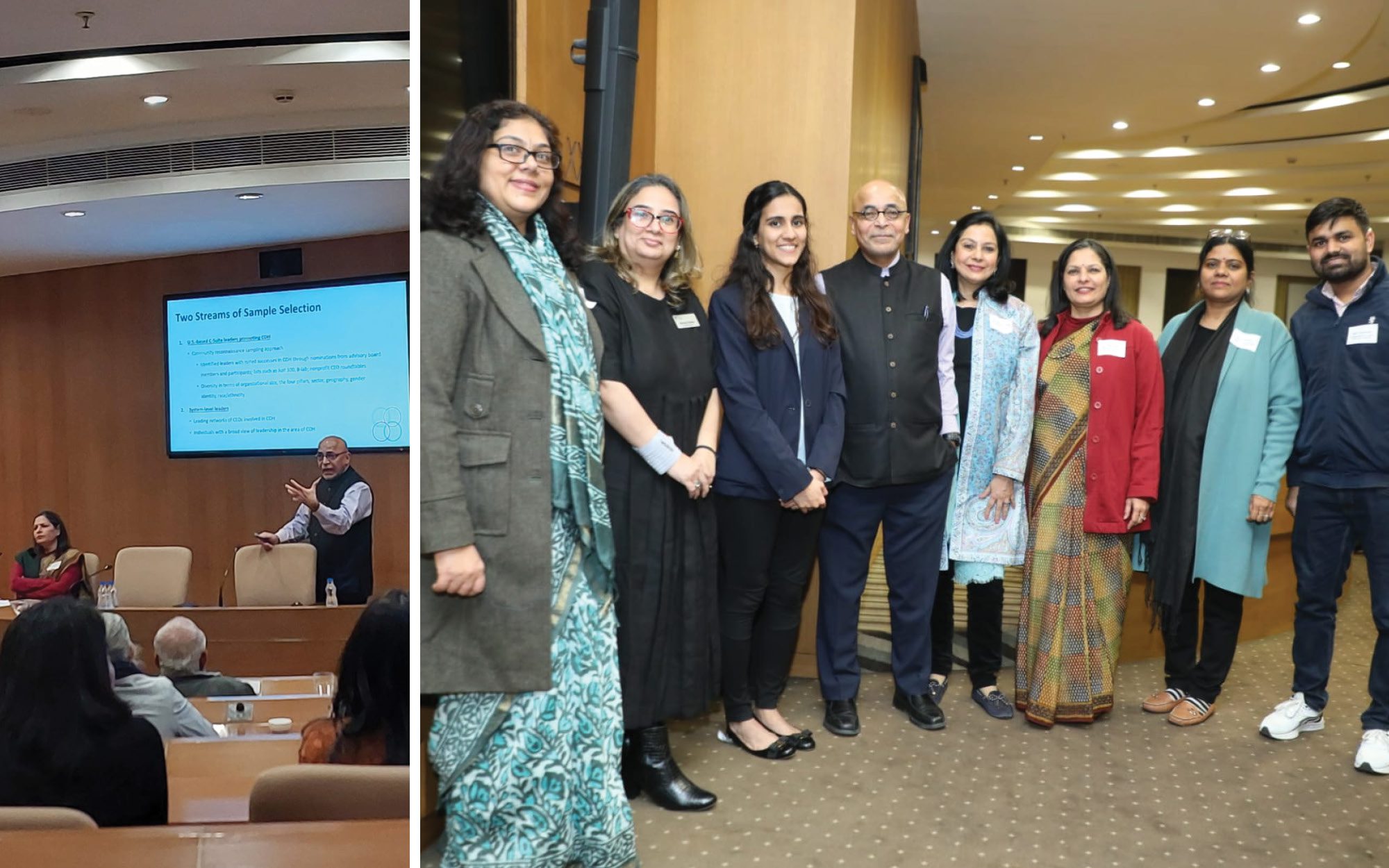
The New Delhi office also hosted the “Architectures of Transition: Frameworks and Practices in South Asia” multi-day conference, which drew nearly 1,000 attendees. The event was coordinated by the Mittal Institute, the Harvard University Graduate School of Design (GSD), the Architecture Foundation, India, the South Asia GSD Student Group, and supported by Amardeep Design, Prakriti Foundation, and JSW. The intent of the conference was to create a forum that helps architects reflect upon the breadth of work undertaken in the South Asia region collectively. The conference put theoreticians, academics and practitioners in dialogue with each other – bridging the schism that exists between the academy and practice. Rahul Mehrotra, John T. Dunlop Professor in Housing and Urbanization at Harvard’s Graduate School of Design, conceptualized the conference and is seen in the top photo (sixth from right) and in the bottom photo, planning the event with New Delhi office staff.
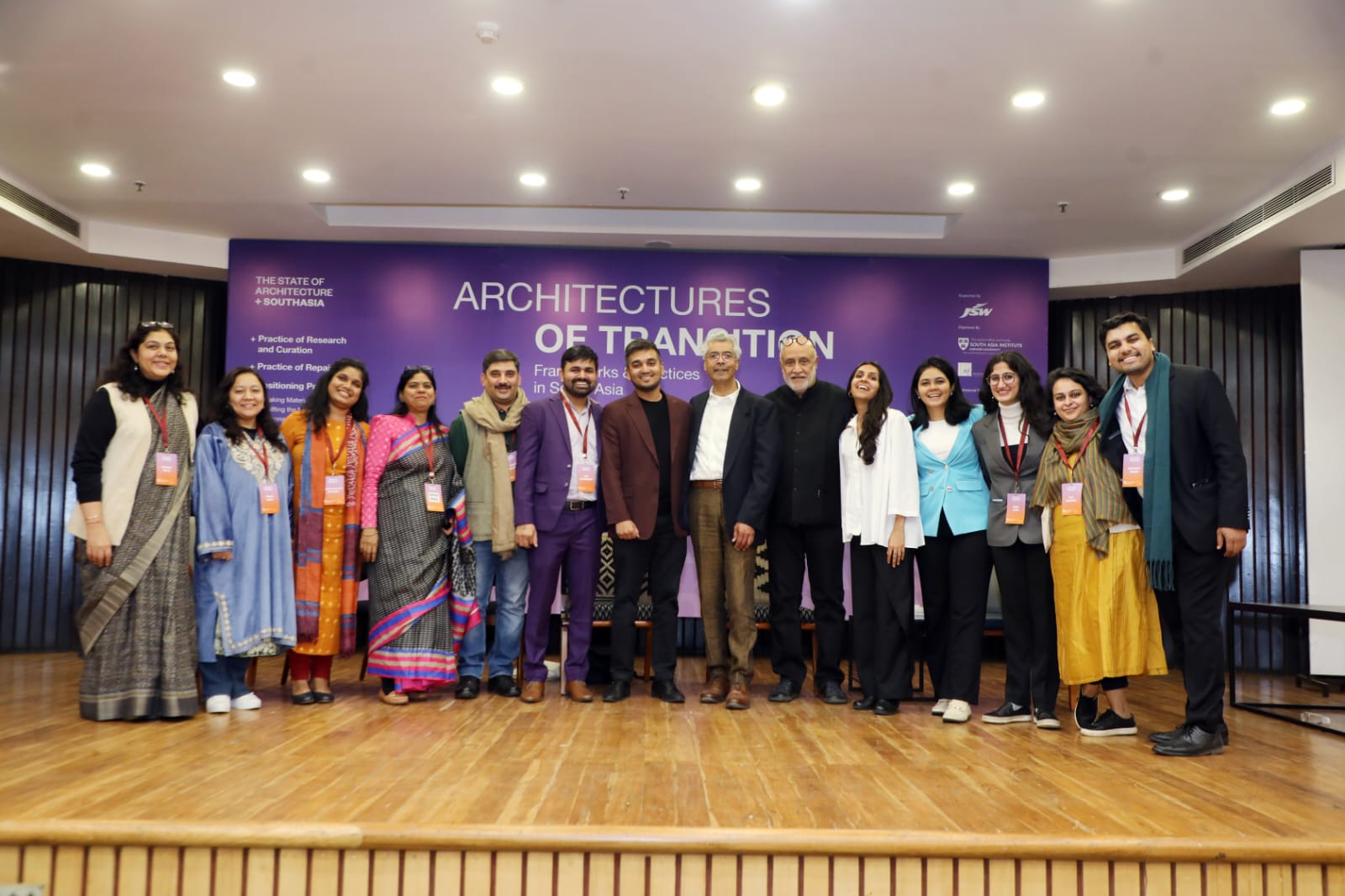
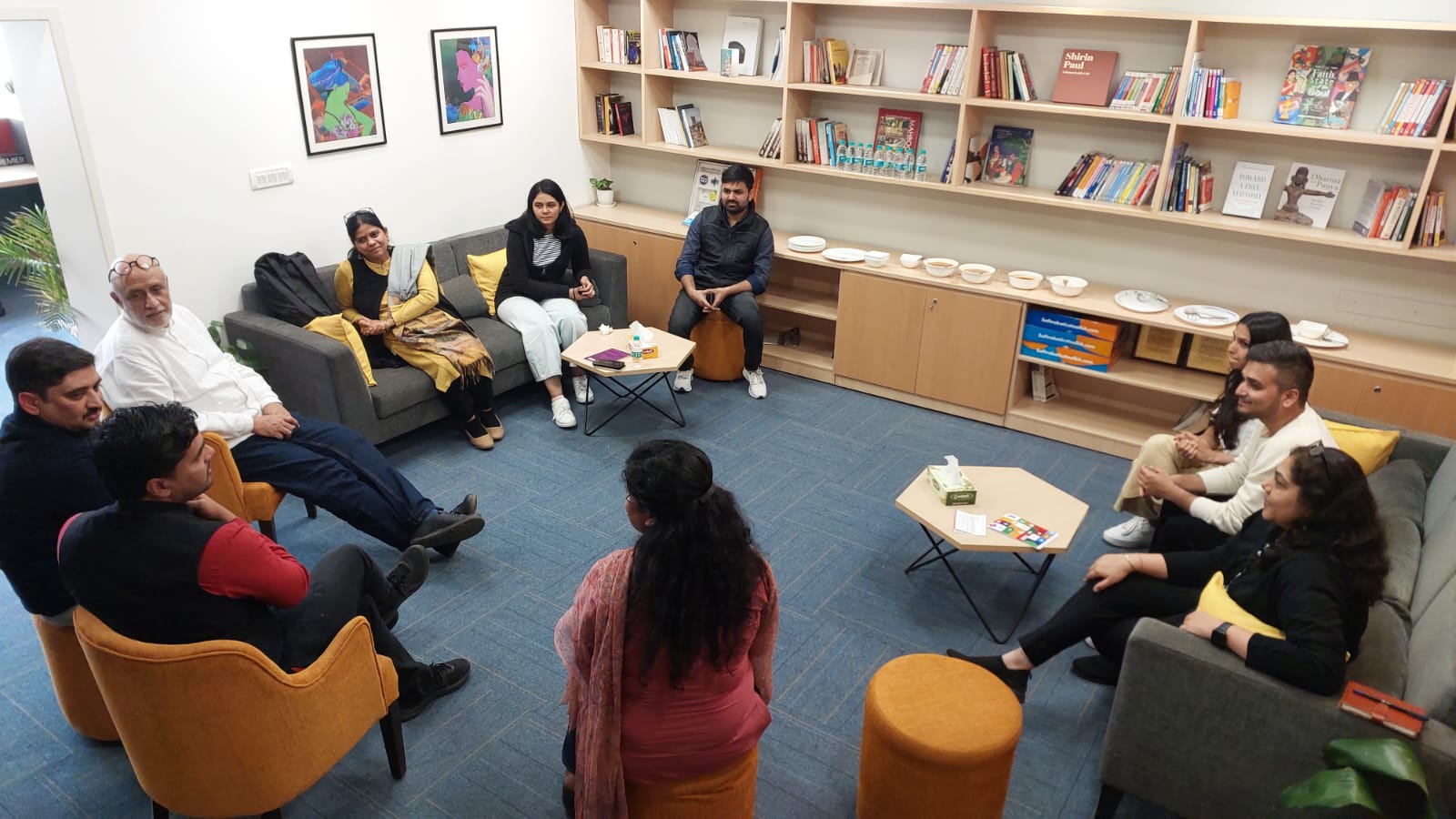
The New Delhi office hosted its annual dinner, to which LMSAI Executive Director Hitesh M. Hathi (far right) attended for an evening of conversation and collaboration with office staff and researchers.
